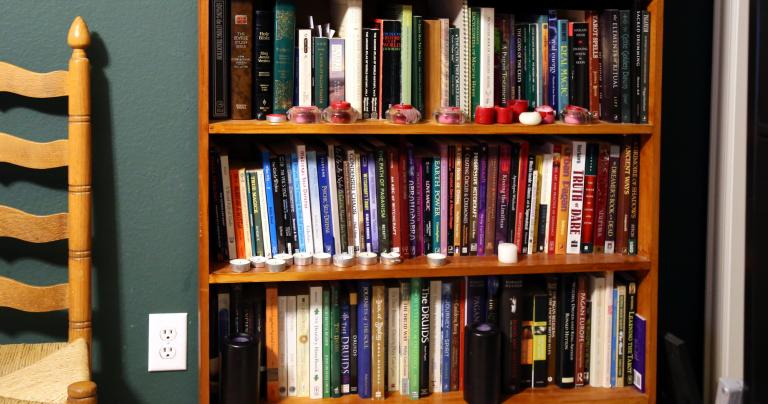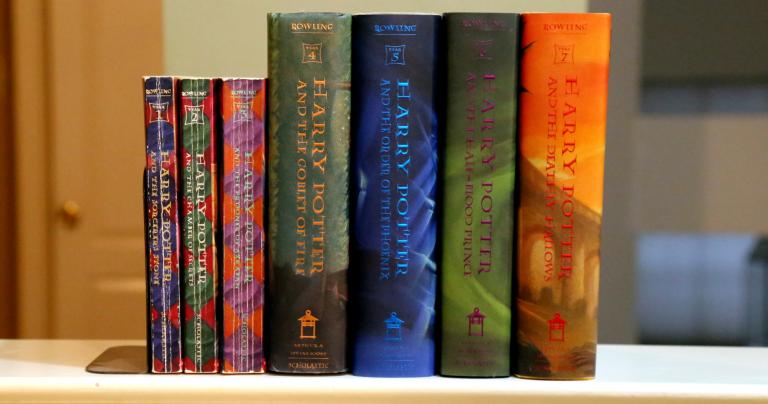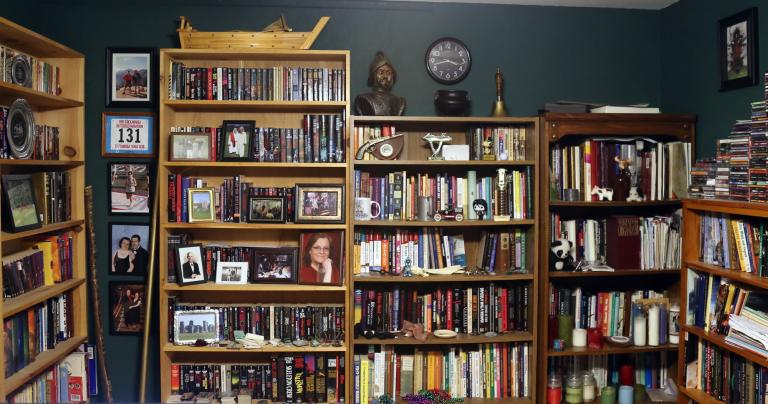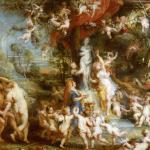I’m watching the whole Marie Kondo “tidying up” phenomenon with some decidedly mixed feelings.
On one hand, I love order. I want things to be neat and clean. My good friends know that when dinner is over and I start cleaning the kitchen while they’re still talking, that’s not a signal I want them to leave. It’s just that I can’t relax with the sink full of dirty dishes. So I tidy up and then rejoin them around the table.
And there’s something to be said for traveling light, both literally and metaphorically. I didn’t go to law school at age 23 because I didn’t want to give up my car, which required car payments, which required a full-time job. That worked out OK (I would have been very unhappy as a lawyer) but that’s a lousy reason for making a major life decision. The less stuff you have the more mobile you can be and mobility is a major asset, especially when you’re young.
On the other hand, I find the whole minimalist movement aesthetically disturbing, especially in restaurants. Now, I’ve had great food in restaurants operating in old houses. Food trucks are trendy but some of them are awesome. But when I walk into a high end restaurant and everything is rows of plain furniture and lots of sharp corners, I’m disappointed. If you want me to pay a lot of money to eat at your restaurant you’re going to have to provide some atmosphere along with the food.
When I see a house or even an office building that’s all glass and steel and white walls, all I can think is “did you spend so much on the building you couldn’t afford furniture?” Functional is one thing – stark is another.
I get not hanging on to things you don’t use. I go through my closet every season and either throw away or donate the stuff I’ve stopped wearing. I periodically do the same thing with my desk and my storage closet.
But when I heard that Marie Kondo had said that everyone should have no more than 30 books, well, them’s fightin’ words.
131 books in active use
The picture above is my ready reference bookcase – it’s two rather short steps from my desk. These are the books I use on a regular basis: when writing blog posts, composing rituals or UU Sunday services, answering questions I get on Facebook and in e-mail, or just satisfying my own curiosity about something.
I counted – there are 131 books on these three shelves. I haven’t read Urban Pagan or Truth or Dare in a lot of years. I probably should move them to a secondary shelf and make room for Star.Ships and The Chaos Protocols. But other than those, I’ve used all these books in the past year. And the Druid books on the bottom shelf? I’m touching one of those at least every other week.
When I first came to Dallas in 2001, I spent 5 months living in an extended stay hotel. It was enough. In a way it was like living in a monastery – simple, functional, and with minimal distractions. But I still remember many times reaching for something (which was usually a book) only to realize it was in my house back in Atlanta.
If I had to get rid of all but 30 books I could do it. And then I’d spend the rest of my life angry over the wealth of information I used to have at my fingertips that was now gone.
Physical books bring me joy
I have a Kindle. I like being able to get books instantly, and I like not having to buy more bookshelves for novels I know I’m going to read once and then never pick up again. I like being able to travel with plenty of reading material without having my backpack filled up with heavy books.
But my Kindle is old – I’m not sure it works anymore. As I’ve cut back on my fiction reading, I’ve had less and less reason to use it. I like physical books. I like holding them and flipping through them. I like the feel of the paper on my fingers.
And I like looking at them on the shelves.
Will I ever read the Harry Potter books again? It’s unlikely. I don’t have much time for fiction anymore, much less for fiction re-reads. But every time I see these books on the shelf I remember reading them. I remember The Boy Who Lived, Hogwarts, Hermione, and He Who Must Not Be Named. I remember doing what’s right instead of what’s easy.
Could I remember all that without having the books? I could. But would I, without something to remind me? It’s unlikely.
The text may be the same either way, but physical books bring me joy in a way that e-books never will.
Books are wealth
As others have explained in depth, there is a strong classist undercurrent to minimalism. If you’re poor, you don’t dare throw anything away. Someday you might need it and not have the money to buy another one.
My father was a child of the Great Depression. He never threw anything away, never bought repair parts if he could rig up something, and always drove a pickup truck “in case I see something I can salvage.” His shop full of second-hand tools, leftover building materials, and various odds and ends represented wealth to him.
We all want to be wealthy. We want to have enough, and more. But wealth means different things to different people. Our consumer society tells us that wealth is having lots of expensive things, especially things other people can’t afford. I thought I needed an expensive car and a huge house to feel wealthy. It took a while, but I finally realized I need a decent car and a big-enough house.
This picture is taken from behind my computer – this is what I see when I look up from my writing. This makes me feel wealthy. These books represent my life. Some of them are old but none of them are rare – if I have any first editions it’s strictly by accident. But they represent a lifetime of reading, learning, and collecting.
There are a handful of books that were in my parents’ house before I was born. There are classics I read in high school. There are vampire books that helped keep me sane during a difficult time in my life. There are Christian books I read when I came to the realization that the Baptists hadn’t told me the whole story of Christianity. And there is so much more. Like the photos and mementos that share the shelves, every book has a memory attached.
This is real wealth.
Wealth has to be maintained
Marie Kondo isn’t entirely wrong.
“Do you own your stuff or does your stuff own you?” This minimalist query is generally directed at people who buy stuff on credit. If you have a big house on a 30-year mortgage, a BMW on a 3-year lease (or worse, on a 6-year loan), and a permanent balance on your credit cards, you’re rather limited with what you can do. You have to keep working or all your stuff will disappear.
The only people who take out loans to buy books are college students – textbook prices are another rant for another time. Every book I own – and likely, every book you own – is paid for.
Still, wealth has to be maintained. I couldn’t move into a tiny house – I couldn’t fit all the books into it. When you add in my wife’s even larger collection, we’d have trouble fitting them into an ordinary apartment. If we downsize in retirement, we’ll have to make some hard choices. And if we ever get to the stage where we have to move into some sort of assisted living center, we will have to get rid of many books. That will be a very sad day.
But today is not that day.
Keeping tidy bookshelves
It’s been five years since I wrote about throwing away VHS tapes to make room for more books. I still have some open space, but I’m going to need another bookcase pretty soon. Not sure where I’ll put it – there no room left in my office.
I’m sure my office wouldn’t pass Marie Kondo’s inspection, but I know where everything is. I’d like to do some reorganization, but honestly, I’d rather spend my free time reading the books than shuffling the books.
There is value in reducing clutter, in getting rid of things you don’t use – and in not buying more things you don’t need. But for me, books represent wealth, and books bring me joy.



















